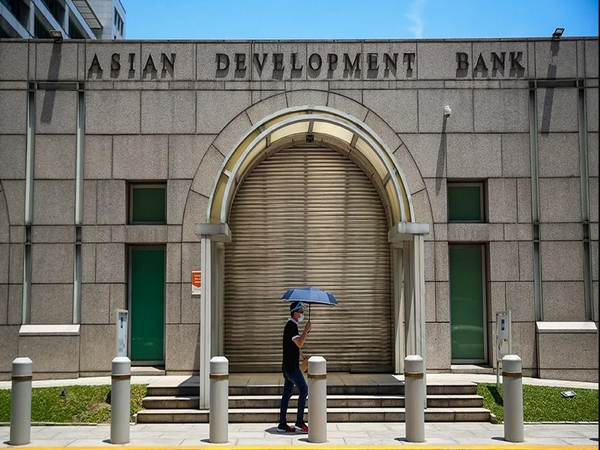ADB Supports Thailand’s First Sustainability-Linked Sovereign Bond Issuance, Raising $880M
The Bond Will Fund Thailand’s Climate Goals, Including Significant Reductions in Greenhouse Gas Emissions and the Promotion of Zero Emission Vehicles

- Country:
- Thailand
The Asian Development Bank (ADB) has assisted Thailand’s Public Debt Management Office (PDMO) in issuing Asia's first sustainability-linked sovereign bond (SLB). This marks the third SLB issuance in the world, following those of Chile and Uruguay. The bond, which was issued on November 25, 2024, raised 30 billion baht (approximately $880 million) and was oversubscribed by more than 2.7 times, attracting interest from both local and international institutional investors.
Sustainability-linked bonds (SLBs) are financial instruments whose features, such as coupon rates, can vary based on whether the issuer meets specific key performance indicators (KPIs) and sustainability performance targets (SPTs). Thailand’s SLB is designed to support the country’s efforts to reduce greenhouse gas emissions and promote a green transition.
Thailand’s Climate and Sustainability Goals
The proceeds from the bond will support Thailand's ambitious climate goals, including a 30% reduction in greenhouse gas emissions by 2030 (compared to business-as-usual levels). In addition, the bond targets the increase of zero-emission vehicles (ZEVs), with an aim of adding 440,000 passenger cars and pickup trucks to Thailand’s roads by 2030.
“This bond reflects ADB’s commitment to innovative financial solutions that support Thailand’s climate targets and commitments, building on our support for PDMO’s first sustainability bond in 2020,” said Anouj Mehta, ADB’s Country Director for Thailand. “The issuance of this SLB underscores the critical role capital markets can play in attracting public and private investment, both of which are essential for the country’s transition to carbon neutrality by 2050 and achieving net-zero emissions by 2065.”
A Model for Sustainable Development in Thailand
The issuance of Thailand's SLB aims to set a positive example for both state enterprises and the private sector, demonstrating how they can collaborate to promote sustainable development and contribute to the growth of local sustainable capital markets.
“We hope that the issuance of the SLBs will serve as a good example for both state enterprises and the private sector in collaboratively promoting sustainable development in Thailand while contributing to the development of local sustainable capital markets,” said Patchara Anuntasilpa, Director General of the PDMO. “We appreciate the support from ADB, relevant government agencies, development partners, and joint lead arrangers in designing the SLB structure, which reflects Thailand’s commitment to addressing climate change and fostering a sustainable economy and society.”
ADB’s Technical Assistance and Partnerships
ADB played a pivotal role in providing technical assistance for the issuance through its Green, Social, Sustainable, and Other Labeled (GSS+) Bonds Initiative for Southeast Asia. This initiative is a collaboration between the ASEAN Catalytic Green Finance Facility (ACGF) and the Asian Bond Markets Initiative (ABMI). The ACGF is an initiative of the ASEAN Infrastructure Fund, aimed at accelerating green infrastructure investments in Southeast Asia. The ABMI involves governments from ASEAN, China, Japan, and South Korea, and seeks to develop local currency bond markets across the region.
Boosting Sustainable Capital Markets
This SLB issuance highlights the growing importance of sustainable finance and how it can help accelerate countries' efforts to combat climate change. By integrating climate targets directly into financial instruments like the SLB, Thailand is not only attracting investment but also signaling its strong commitment to meeting global climate goals and reducing its carbon footprint.
This initiative is expected to inspire other countries in Southeast Asia and beyond to explore sustainability-linked finance solutions to fund their climate and environmental goals. As the financial world increasingly embraces green finance and sustainable investment strategies, SLBs like this one offer a new and flexible way for governments to raise capital while fostering long-term environmental and social benefits.










